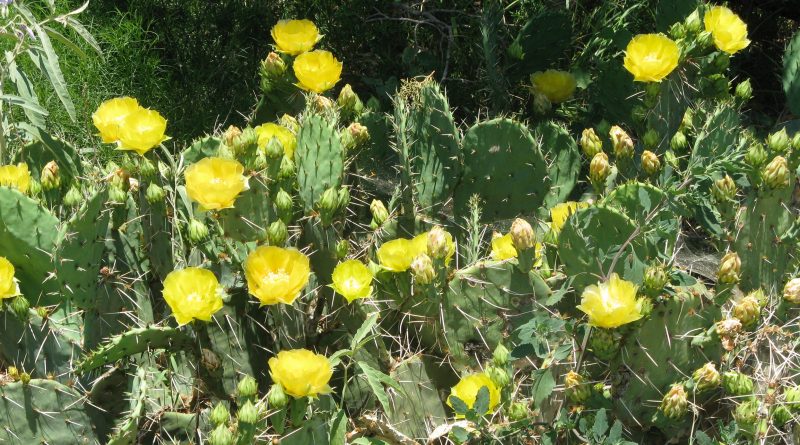OPINION: RETROSPECTIVE – 12 STARTERS FOR “TALKING CLIMATE” WITH EVERYONE

Wildflowers in Texas. Photo: Russ Vernon-Jones

This month, March 2020, marks the one-year anniversary of my blog, “Love, justice, and climate change … I know you can make a difference.” Twenty-five posts in all. Whether it’s because you have a busy life, or because you only recently started reading this blog, you likely haven’t read all of them. This post provides a retrospective of the first 12 posts (more to come later) — an annotated table of contents, if you will. This will let you see what’s there and perhaps go back and read ones that are of special interest to you.
Each Piece That I Write Has Two Purposes
- To help you be informed, hopeful, and connected — being your companion as we face the challenges of the climate crisis in the coming decade together.
- To encourage, inspire and equip you to “talk climate” everywhere you go. We all want to make a difference – to take action. We may not be comfortable “talking climate”, but it’s vital. The only way the climate crisis can be stopped is if large numbers of people demand that solutions be implemented immediately. Our conversations and group discussions are a key step to getting many more people engaged and active. Together, we are the force for change. (See “How to Talk with People About Climate and Why it Matters – Approach #1” for more about this.)
Each of the 12 posts highlighted below can be used as a conversation starter. You can share one idea from a post and then ask people what they think about that. You don’t have to convince them of anything, just get them thinking about climate for themselves.
Companions
This was my very first post. It’s a personal message from me to readers. Here are two excerpts:
” I hope this blog can be your companion as you figure out your own ongoing relationship with climate change, racism, and with staying hopeful and energetic.”
“My real hope is that some of what appears in this blog will enable you to engage more with people around you on these issues and lead to you having your own new thoughts.”
How Are Racism and Climate Change Connected?
This post could be titled “How to talk with friends about racism and climate change.” I come back to this question repeatedly, but this is a place to start. It would be good if we could all bring up this topic and help people better engage with it. This post begins with a story about Vicki Carson, an African American school bus driver who was flooded out of her home in Houston.
Who Matters: Love and Climate Change
After I wrote this piece it kept working away in my mind. It eventually led me to rewrite the tagline of the whole blog. Talking about love and climate change together usually works better than scaring or scolding people.. The post includes a story about two farmers in India. It explains more about racism, climate change, and the role of the United States. It invites us to take the action step of deciding that everyone, everywhere matters.
Two Things People Need
The people who study these things have found that the two things people most need in order to engage with the climate crisis are:
1. Hope
2. Something they can do about the problem
This post suggests a way you can offer people genuine hope and also guide them toward action.
Is It Too Late?
Do you wonder about this? My perspective includes:
“The situation is already worse than we realize, yet we are living in the window of time when we still have an opportunity to prevent the worst level of disaster. Is it to late? Yes, and no. There’s no time for complacency, but there is time to act.”
Feelings
Feelings can make us turn away from climate change and racism and can make us less effective. If we are going to stay engaged with this crisis, we will need to help each other with inevitable grief, fear, anger and despair. This post describes how you can support others and yourself. I can attest to the effectiveness of this approach based on ongoing personal experience.
Women and Girls and Climate Change
How are the rights of women and girls are connected with climate change? Here I describe specific steps to empower women and girls that will help stop climate change. This post includes information about efficient wood cookstoves, family planning, rape, women farmers, educating girls, dismantling male domination, and how all of these have connections to climate change.
Why a Green New Deal?
The Green New Deal is still one of the most exciting developments in the United States with regard to climate change in the last few years. It proposes to achieve net zero greenhouse gas emissions, millions of high-wage jobs and promote justice and equity. It’s worth sharing with people if you want to get them more engaged and hopeful. You can start a good conversation or discussion using just what’s in this post.
Can We Stay Within Our Carbon Budget?
This post provides a simple, straightforward explanation of what the “carbon budget” is and how it illuminates our situation. It’s implications are far-reaching. My first exposure to this concept re-organized my thinking and played a significant role in turning me into a climate activist.
One Reason I Don’t Despair
I think the situation is dire, but I don’t share the view that doom is inevitable. “Project Drawdown” has persuaded me that there are many things humanity can do to reduce how much net carbon we add to the atmosphere and therefore limit the extent of climate destruction. In this post I outline the top 10 global solutions identified by the project. People are always fascinated and surprised when I share the top 10 solutions.
Can One Person Make a Difference?
“A friend recently asked me, “How important is it that I reduce my carbon footprint? Will it really make any difference?” This is a good question. I’ve been puzzling over this for years. The short answer is that it’s important, but not sufficient. We must lower our carbon footprints and work collectively to force governments and industries to make big changes. This post deals with the relationship between individual actions and mass movements.
Eating as if Climate Change is Real
Food is personal. Changing how we eat is challenging, and most of us don’t want anyone telling us what to eat. On the other hand, as Thich Nhat Hanh says, “Making the transition to a plant-based diet may well be the most effective way an individual can stop climate change.” This post explains the basic science behind this claim and offer a no-guilt approach to getting more of our protein from plants, without expecting everyone to become vegetarian. Check out the chart that shows the greenhouse gas emissions from various sources of protein – with some surprises.
Russ Vernon Jones blogs regularly on climate justice at www.RussVernonJones.org
.
